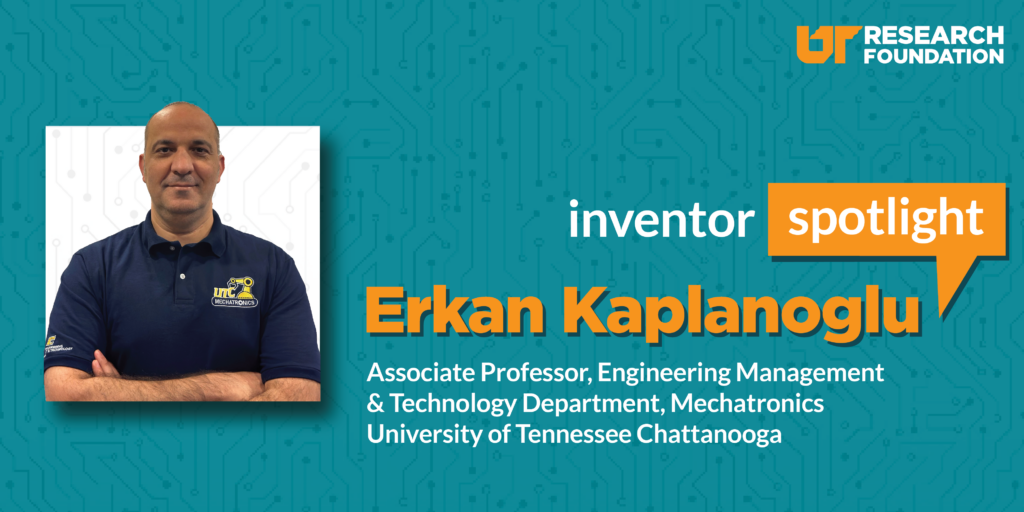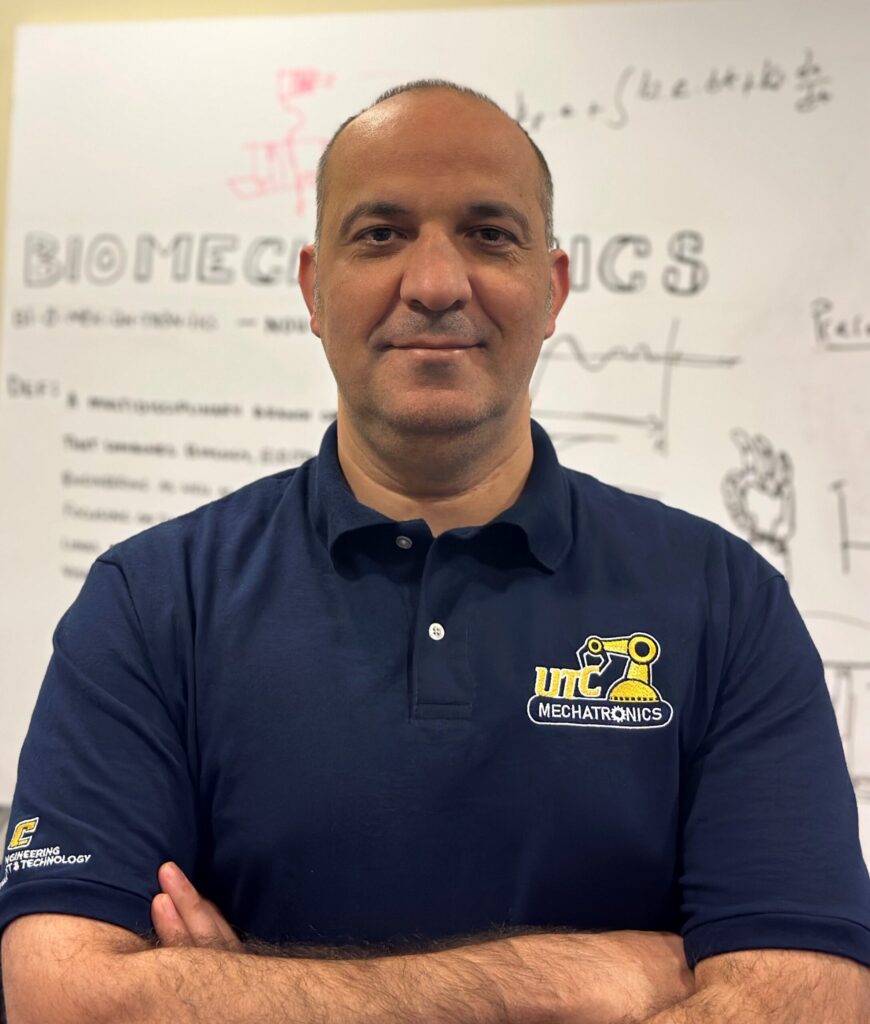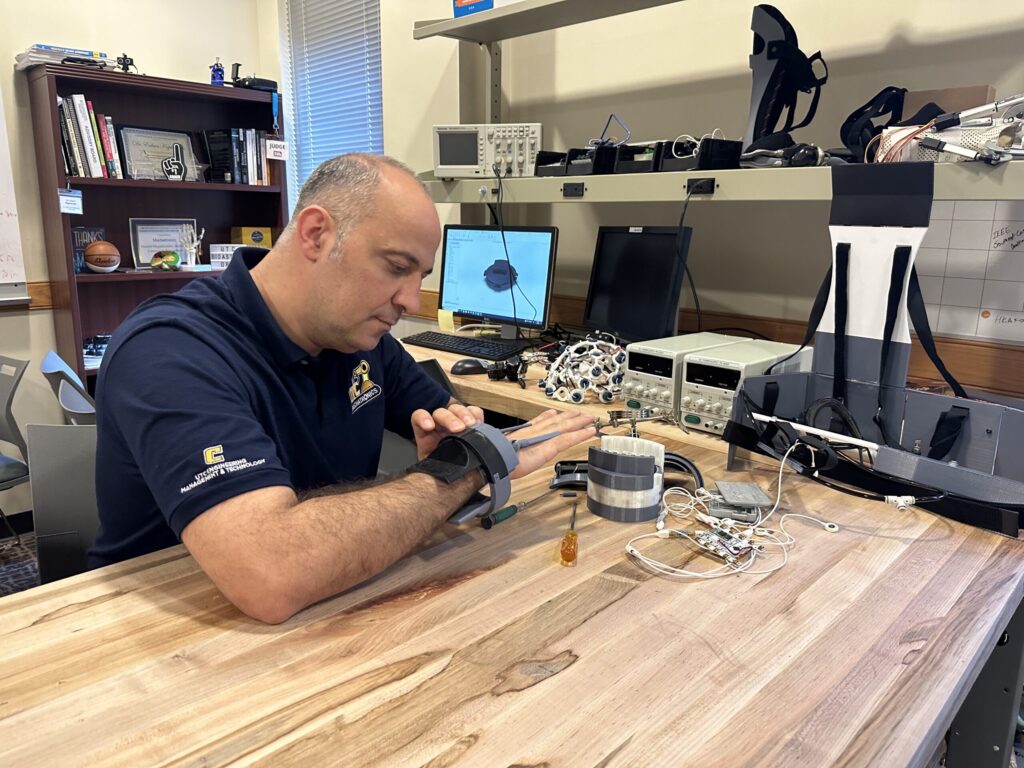
Roughly 7 million people in the United States deal with essential tremors, a neurological disorder causing involuntary rhythmic shaking (particularly in the hands) that may worsen over time. This condition can cause difficulty eating, drinking, and performing other routine activities.
To help this population, one researcher at the University of Tennessee at Chattanooga (UTC) (in collaboration with team members from Marmara University in Istanbul, Turkey) is developing a wearable, lightweight device as a non-invasive treatment alternative to existing surgical procedures or other treatments with harmful or inconvenient side effects.

Erkan Kaplanoglu is an Associate Professor in the Engineering Management & Technology Department, Mechatronics at UTC. In 2019, he founded the Biomechatronics & Assistive Technology Lab (BioAstLab), where he and his students develop assisted technology and prosthetic devices.
His research’s primary goal is to eliminate treatment barriers for people with disabilities or other health-related concerns. After suffering a family tragedy due to poor operational outcomes and experiencing negative patient-related situations, Kaplanoglu’s research is personal to him.
We can make technology to improve and save people’s lives,” said Kaplanoglu. “I want to remove obstacles in their path.”
Kaplanoglu developed a device to treat essential tremors after seeing a woman in a local coffee shop who was dealing with the disorder. He felt motivated to create a solution to reduce these tremors and allow people with the condition to live more comfortably.
His device, Smart Essential Tremor Stopper (sETs), uses a dynamic magnetic system with sensors to detect shaking frequency and dampen movement with magnetic currents. The device does not limit movement and only operates when tremors occur.

With support from a UT Research Foundation Maturation Grant, Kaplanoglu has created two versions of the technology and is gathering preliminary data to support further development.
UTRF has been extremely helpful in disseminating our work. We are researchers and do not have experience with protecting our devices or defining our product for the market,” said Kaplanoglu. “Instead of putting my research on a shelf, I want it to reach and help others. UTRF helps me do that.”
Kaplanoglu plans to expand his research and the device to support people dealing with other movement disorders, such as Parkinson’s Disease.
Since day one, Erkan Kaplanoglu has been a pleasure to partner with to develop and commercialize his innovative ideas,” said UTRF President Maha Krishnamurthy. “The UTRF Maturation Grant is designed to help innovators like Kaplanoglu get their work to populations who need it the most.”